
By Isabelle Anne Abraham
Travel Writer10 Feb 2020 - 5 Minute Read
It’s a common question for any traveler, but for a third-culture kid, it poses a bit of a dilemma: Do I tell them where I live? Where my birthplace is? My nationality?
Since arriving in Portugal for a 15-day trip, I’d heard “Where are you from?” more than a dozen times. In this moment, it was asked by Júlio, a local São Miguel resident I met in the Azores archipelago. “Mozambique,” I answered, anticipating the inevitable response to being a monoglot from a former Portuguese colony.
“You’re Mozambican? Then why don’t you speak Portuguese?” he demanded.
“I live in Mozambique, but I’m Indian.”
Skepticism clouded the Azorean’s face, so I added, “I’ve spent half my life in South Africa, which is why my Portuguese isn’t good.”
Júlio rolled his eyes in jest and clapped me hard on the shoulders. “So, really, you don’t even have a home?”
I shrugged and laughed as he walked away, but the remark niggled at me for a while.
Being the daughter of first-generation immigrants, I’d always hesitated to tie myself to any one place. The concept of “home” was uncertain because, well, where was it exactly? Was it in a specific city, country, or continent – all of which I’d traded several times over the years? Was it among friends and family, who were scattered around the globe? Or did it lie in the routine of everyday life, which was never a constant for me?
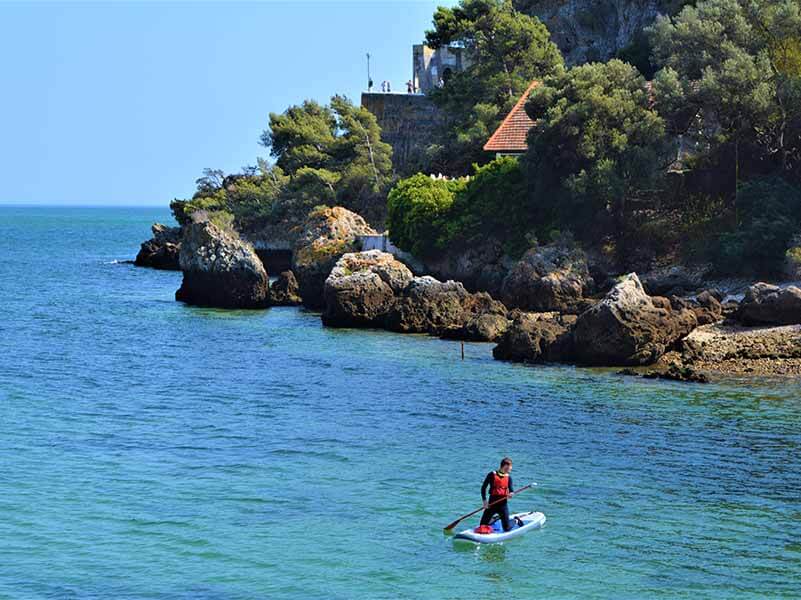
Despite Portugal’s history of exploration, my answer to “Where are you from?” was often met with curiosity, confusion, or even suspicion. Sometimes it was as simple as a blank look; other times, more memorable reactions, like the one I received on a pier in the Nature Park of Arrábida, surrounded by the bay’s infinite shades of aquatic blue. The word “Mozambique” had barely left my mouth when a chatty paddleboard instructor sputtered incredulously, “What the fuck? What the fuck!” It took a good few minutes to convince him that I wasn’t a Mozambican pretending not to speak Portuguese.
It was only the first week of my trip, and I was beginning to feel mildly anxious whenever the question was directed my way. So, at a tavern in São Miguel, Ileana – another solo traveler – offered a suggestion.
“Just tell them you’re South African,” she said, as we tucked into Azorean beef and freshly prepared fish. “Then you don’t have to explain the language problem.”
As a Dominican-American living in New York, one of the world’s most ethnically diverse metropolises, Ileana knew a thing or two about dealing with cross-cultural irritants.
“The thing is,” I interjected, “I’m not South African. Maybe I don’t really belong anywhere.”
* * * * *
“Portuguesa?”
“Não.”
“Espanhola?”
“Não.”
“Brasileira?”
“Não, sou Indiana.”
“Mas és de onde?” But where are you from?
The interrogation was delivered by a scowling taxi driver, António, as we crept along the tortuous road up to a Moorish castle back in continental Portugal. After spending the previous 15 minutes shaking his fists at swerving vehicles, his bright cyan eyes were now focused on me.
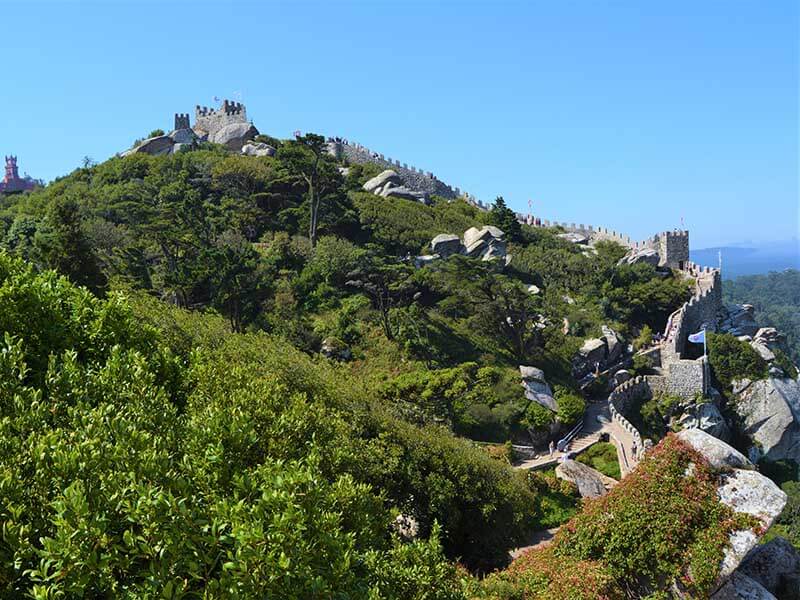
As soon as I replied “Maputo,” the capital of Mozambique, António launched into rapid-fire Portuguese: “Lembra que chamava-se Lourenço Marques? Um dia, vou visitar…” (“It was called Lourenço Marques, remember? One day I’ll visit…”)
I nodded at his increasingly complex sentences, occasionally throwing in a “sim” to reassure him I was still listening. As our ascent steepened, the passenger window slid down, and he instructed me to breathe in the Sintra Mountains.
The purifying air roused my lungs, and I asked if we could switch to English. Without missing a beat, António gestured toward the rugged landscape.
“I’m actually Ukrainian, but I’ve been here 37 years,” he said, as we reached the summit under a canopy of oak trees. “This is my home.”
* * * * *
My last few hours in the country were spent on the terrace of a tranquil cafe in Lisbon. As I watched a young girl test her balance on a fountain ledge, I remembered a Danish author who, more than a century earlier, had written about leaving Portugal: “I was heavy-hearted; should we ever meet again? Never more should I visit this beautiful distant land, where I had felt myself well and at home.”
Unexpectedly, I too had felt a strange sense of familiarity wherever I went in the country.
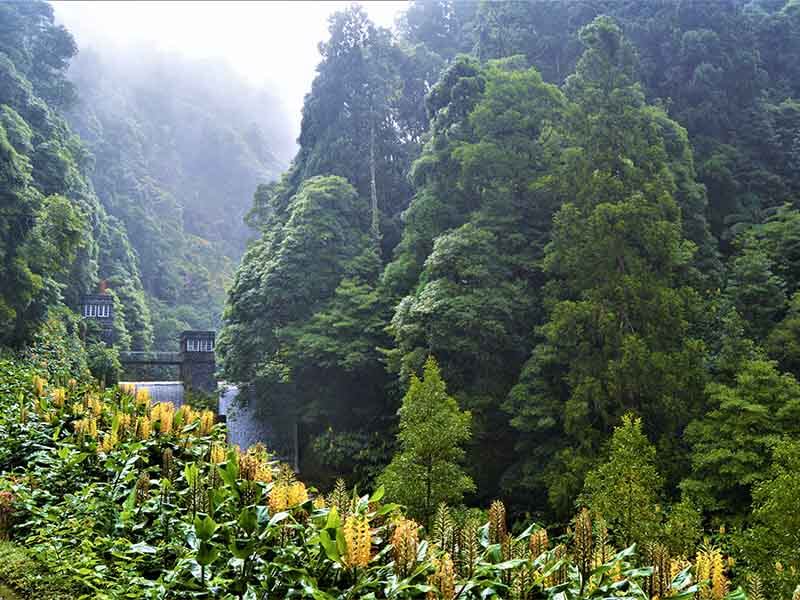
The Azorean island’s rain-clad laurel forests evoked memories of the tropical plantations of Kerala, where my long-gone grandparents had once lived.
Whether imagined or not, the Portuguese Riviera’s resemblance to Durban, the lively South African port city in which I was born, continually struck me with déjà vu.
In Lisbon, I saw traces of Mozambique everywhere: in the colorfully faded apartment buildings, in the rhythmic notes of Lusophone music, in the genial nature of the people. I’d even caught an aching glimpse of it gamboling past in the form of an Airedale Terrier named Zoco – the fluffy reincarnation of Dino, my childhood pet in Maputo.
By the end of my journey, I still couldn’t definitively answer the question “Where are you from?” But I was starting to understand that as a perpetual traveler, feeling at home could happen anywhere. And for a while, however briefly, I’d felt it in Portugal.
Discover similar stories in
connection
Travel Writer
After a brief stint in journalism and new media, Isabelle abandoned the nine-to-five to become a freelance editor.
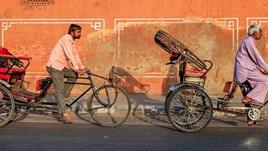
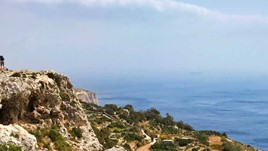
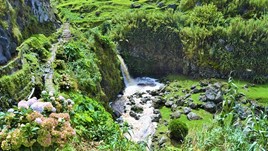
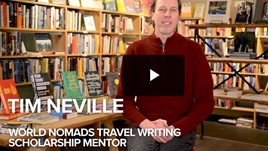
No Comments